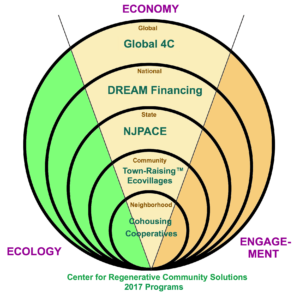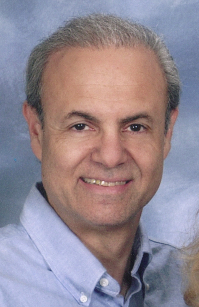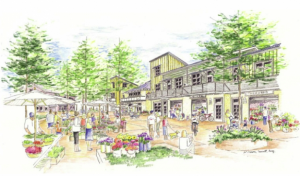The Climate Crisis and What We’re Doing About It
Financing the Transition to a Regenerative Economy
With the Aim of Restoring the Climate and the Earth
Download PDF version of our year-end letter here
Executive Director’s Year-End Letter 2019
“Being alive right now means rethinking boundaries, pushing on the walls of your imagination. It means feeling around in this world for another one.” (Dan Zak, “Everything is Not Going to Be Okay: How to Live with Constant Reminders that the Earth Is in Trouble,” Washington Post)
Dear Friends and Supporters,
2019 has been a pretty tumultuous year for us, including both substantial achievements and disappointing setbacks. The good news is that Property Assessed Clean Energy (PACE) legislation is on its way in New Jersey, with both the Legislature and the Governor endorsing some version of this long-awaited financing tool. We expect PACE to be operational in 2020, and it could be as early as first quarter.
The first version of PACE legislation was introduced and passed into law in 2011; unfortunately it was flawed, and the Christie Administration took advantage of these flaws to block any meaningful action. Our organization, operating as New Jersey PACE, has been seeking to amend this law for more than seven years, during which time we co-authored at least three prior versions that were rejected. While in retrospect it seems unreal, there were good reasons to believe that PACE could be implemented in each of these years, despite the resistance of the banking industry and of the Governor’s staff at the time.
Evolving and Expanding the PACE Model
But since PACE is still not available in New Jersey (and many other jurisdictions), we continue to seek demonstration projects for the two alternative clean energy financing approaches that we have developed in partnership with structured finance experts, including a major NJ social impact investment fund. Once successfully piloted, these “PACE/Alternatives,”* as we’ve called them, including our New InterCreditor Clean Energy (NICCE, pronounced “nice”) and Deed-registered Renewables & Energy Efficiency Measures (DREEM), will provide commercial property owners anywhere in the US with access to PACE-like financing, regardless of whether PACE is allowed in their jurisdiction.









 While we’re working hard on what we expect to be an avalanche of
While we’re working hard on what we expect to be an avalanche of 